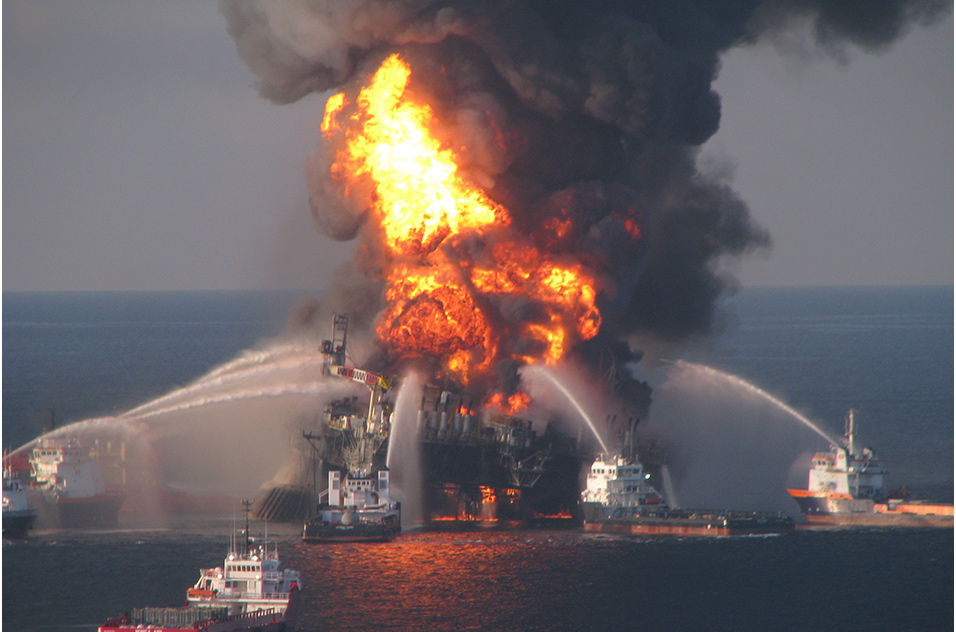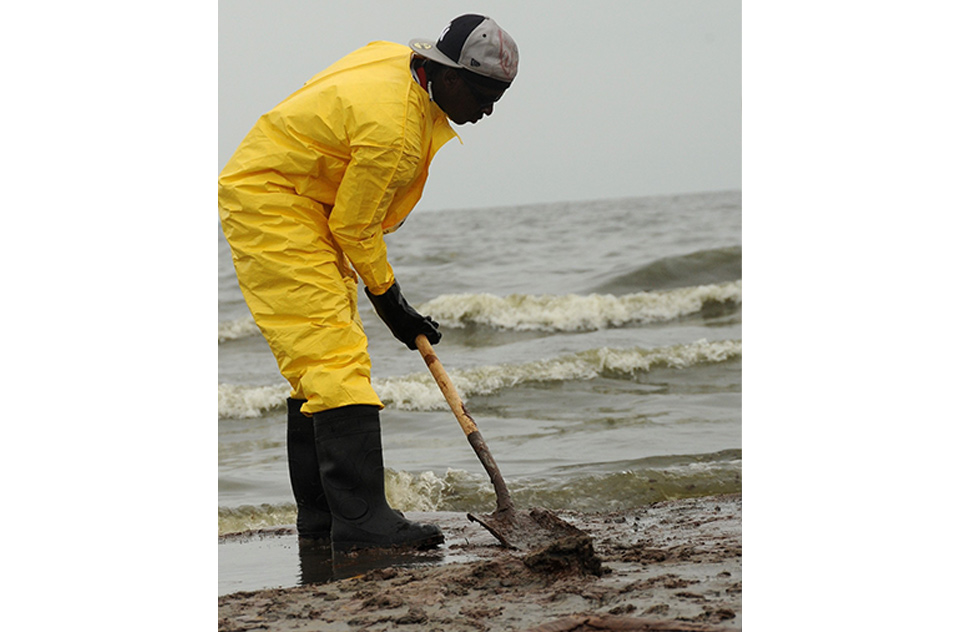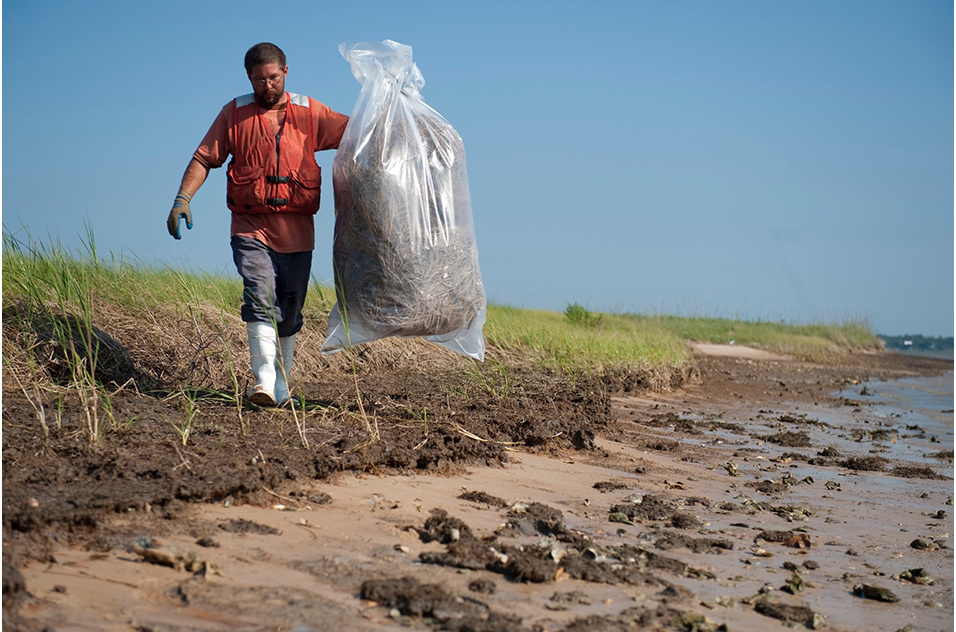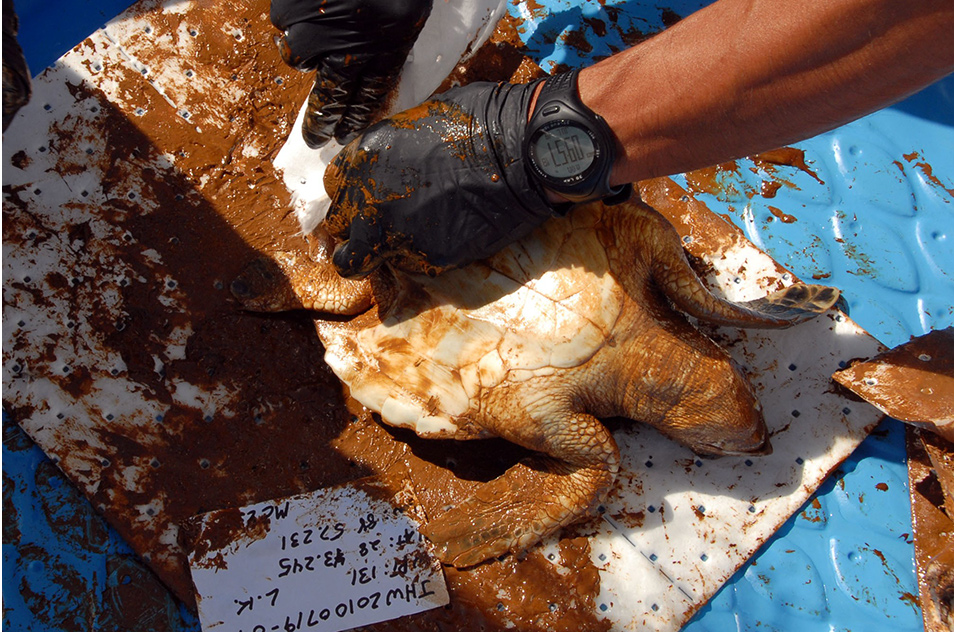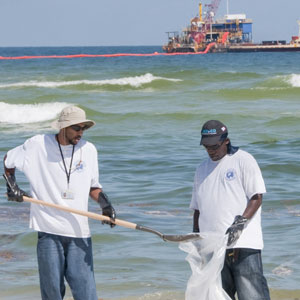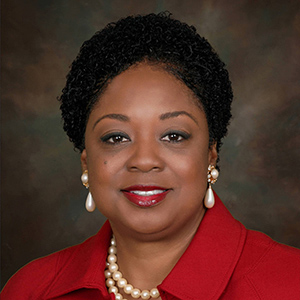NIEHS Gulf Long-term Follow-up (GuLF) Study researchers have determined that in the three years after the Deepwater Horizon explosion and subsequent oil spill in 2010, workers who participated in the cleanup effort experienced increased risk of developing hypertension, also known as high blood pressure. The findings were recently published online in the journal JAMA Network Open.
 “Our study has the most comprehensive exposure assessment on Deepwater Horizon or other oil spill cleanup workers to date,” said Kwok. (Photo courtesy of Steve McCaw / NIEHS)
“Our study has the most comprehensive exposure assessment on Deepwater Horizon or other oil spill cleanup workers to date,” said Kwok. (Photo courtesy of Steve McCaw / NIEHS)Earlier research showed that Deepwater Horizon oil spill cleanup workers experienced mental health problems such as post-traumatic stress disorder and depression; decreased lung function; heart disease; and a range of symptoms consistent with neurological and respiratory disease effects.
Richard Kwok, Ph.D., NIEHS epidemiologist and lead author of the paper, said this research is one of the first oil spill studies showing cardiovascular effects.
'The work suggests that individuals who are exposed to oil or combustion products from burning oil at work should monitor their blood pressure,' he said. 'Chronic high blood pressure could potentially lead to more serious negative health outcomes, such as heart attack or stroke.'
Study design
Between March 2011 and March 2013, the GuLF Study enrolled participants across the U.S. who had worked on the oil spill response and cleanup or completed safety training in hopes of working. All participants completed telephone interviews, and those from the five states bordering the Gulf of Mexico — Texas, Louisiana, Mississippi, Alabama, and Florida — completed home exams that included blood pressure measurement. The final cohort included 32,608 participants, with 11,193 completing the home exam.
To find out whether cleanup workers had a higher risk of developing hypertension, the research team focused on 8,351 participants who completed a home exam and had not been diagnosed with hypertension before the spill, including 6,846 who worked on the cleanup.
The scientists examined whether exposure to total petroleum hydrocarbons and fine particulate matter (PM 2.5), generated by burning crude oil and the flaring of oil and natural gas, were associated with hypertension. Their statistical analysis adjusted for other risk factors for hypertension.
 “The purpose of the GuLF Study was to evaluate a wide range of potential health effects from the Deepwater Horizon oil spill,” said Sandler. (Photo courtesy of Steve McCaw / NIEHS)
“The purpose of the GuLF Study was to evaluate a wide range of potential health effects from the Deepwater Horizon oil spill,” said Sandler. (Photo courtesy of Steve McCaw / NIEHS)'No matter how we looked at exposure to total petroleum hydrocarbons and PM 2.5, whether it was the cumulative maximum level, cumulative average, or job classes, these exposures were associated with increased prevalence of hypertension,' said Kwok.
Future research
The GuLF Study just completed its second follow-up of the full cohort, and Dale Sandler, Ph.D., chief of the NIEHS Epidemiology Branch and Principal Investigator of the GuLF Study, commented on the future of the research project.
'Ongoing work centers on studying heart disease risk with additional years of follow-up, as well as other health outcomes,' said Sandler.
NIEHS involvement
In addition to Kwok and Sandler, NIEHS Senior Medical Advisor Aubrey Miller, M.D., and University of North Carolina at Chapel Hill Associate Professor Lawrence Engel, Ph.D., are co-authors of this research. Engel is an Associate Scientist in Sandler’s research group and serves as co-lead of the GuLF Study.
 During his more than 28-year career, Miller, left, has contributed to the leadership and management of large-scale disaster responses. (Photo courtesy of Steve McCaw / NIEHS) Engel, right, along with Sandler and Kwok, helped to design the GuLF Study, and he leads biomarker and neurological research in the cohort. (Photo courtesy of Lawrence Engel)
During his more than 28-year career, Miller, left, has contributed to the leadership and management of large-scale disaster responses. (Photo courtesy of Steve McCaw / NIEHS) Engel, right, along with Sandler and Kwok, helped to design the GuLF Study, and he leads biomarker and neurological research in the cohort. (Photo courtesy of Lawrence Engel)Citation:
Kwok RK, Jackson WB 2nd, Curry MD, Stewart PA, McGrath JA, Stenzel M, Huynh TB, Groth CP, Ramachandran G, Banerjee S, Pratt GC, Miller AK, Zhang X, Engel LS, Sandler DP. 2022. Association of Deepwater Horizon oil spill response and cleanup work with risk of developing hypertension. JAMA Netw Open 5(2):e220108.





